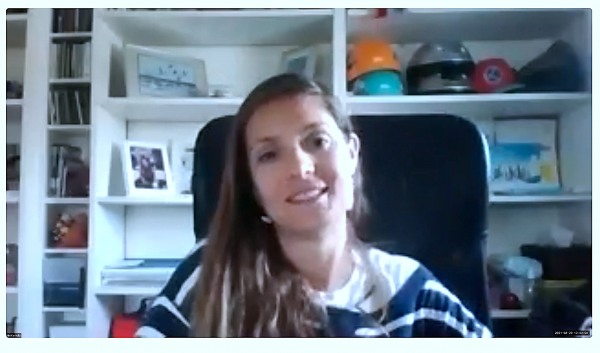In the context of the second R&I Peers Multisectoral Conference, participants had the opportunity to receive first-hand feedback from external project stakeholders about their experience of implementing Gender Equality Plans. One panelist, Niki Karoulla, President of Active Zone Outdoor and Physical Education Teacher in Primary Education, shared her experience of a GEP implementation at Active Zone Outdoor, a non-profit organisation she runs in Cyprus.
As a first action in their GEP implementation, Karoulla says Active Zone Outdoor–which enjoys a membership of fifteen organisations and reaches 250 young people with sporting activities in Cyprus–focused on creating gender balance in two key areas: Within the AZO board of directors, and among participants in AZO external events that focus on outdoor sports activities for youth, ages 18 to 30.
In both cases, AZO reported successes. As of 2019, their 15-member board of directors enjoys involvement by seven women, with Karoulla herself as President. Karoulla also reports that “Click and Go, ” a project promoting non-traditional sports to women, succeeded at reaching equal gender engagement across trainers, leaders, and participants. Key to this success Karoulla says, was “promoting ‘atypical’ sports to women, like mountain climbing, and also by including women leaders in mountain climbing among their training team. This latter especially “challenged important gender stereotypes in this sport,” Karoulla said.
An additional success story Karoulla shared was a program called the Youth Policy Project, which aimed to “cultivate a culture of awareness for equal gender representation in Cyprus. In dialogue among policy-makers, youth, media, coaches, trainers and athletes, Karoulla says their event succeeded in having fifty-fifty participation across the board, a genuine accomplishment.
Karoulla says that key to these successes may be that Active Zone Outdoor is an organisation “made up of young people with an open mindset” which facilitates actions to support gender equality. “Maybe also because I am female,” she adds. Looking forward, Karoulla says she hopes the experience of implementing a gender equality plan at AZO can show that other NGOs can benefit from such strategies. Critical to this she says, is that “people in charge of the organisation have to treat gender issues as impacting both male and female. It is not just an issue for women,” Karoulla says. “It is an issue for all of us.”




